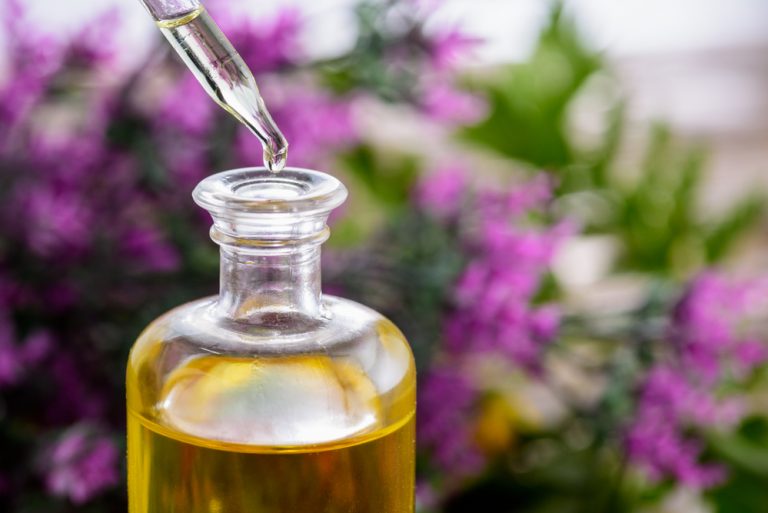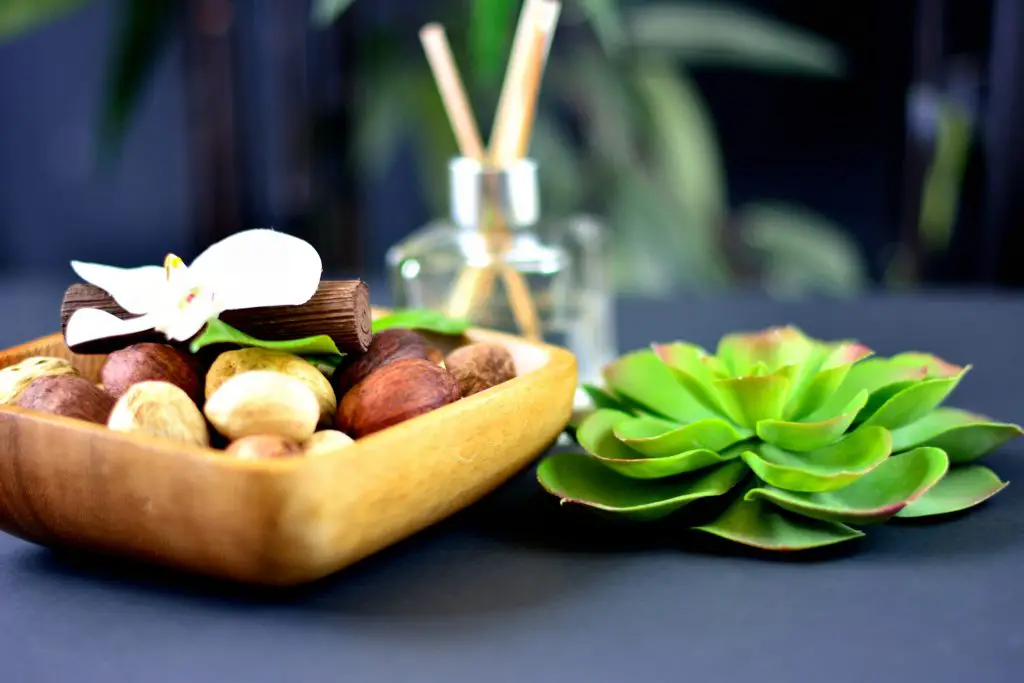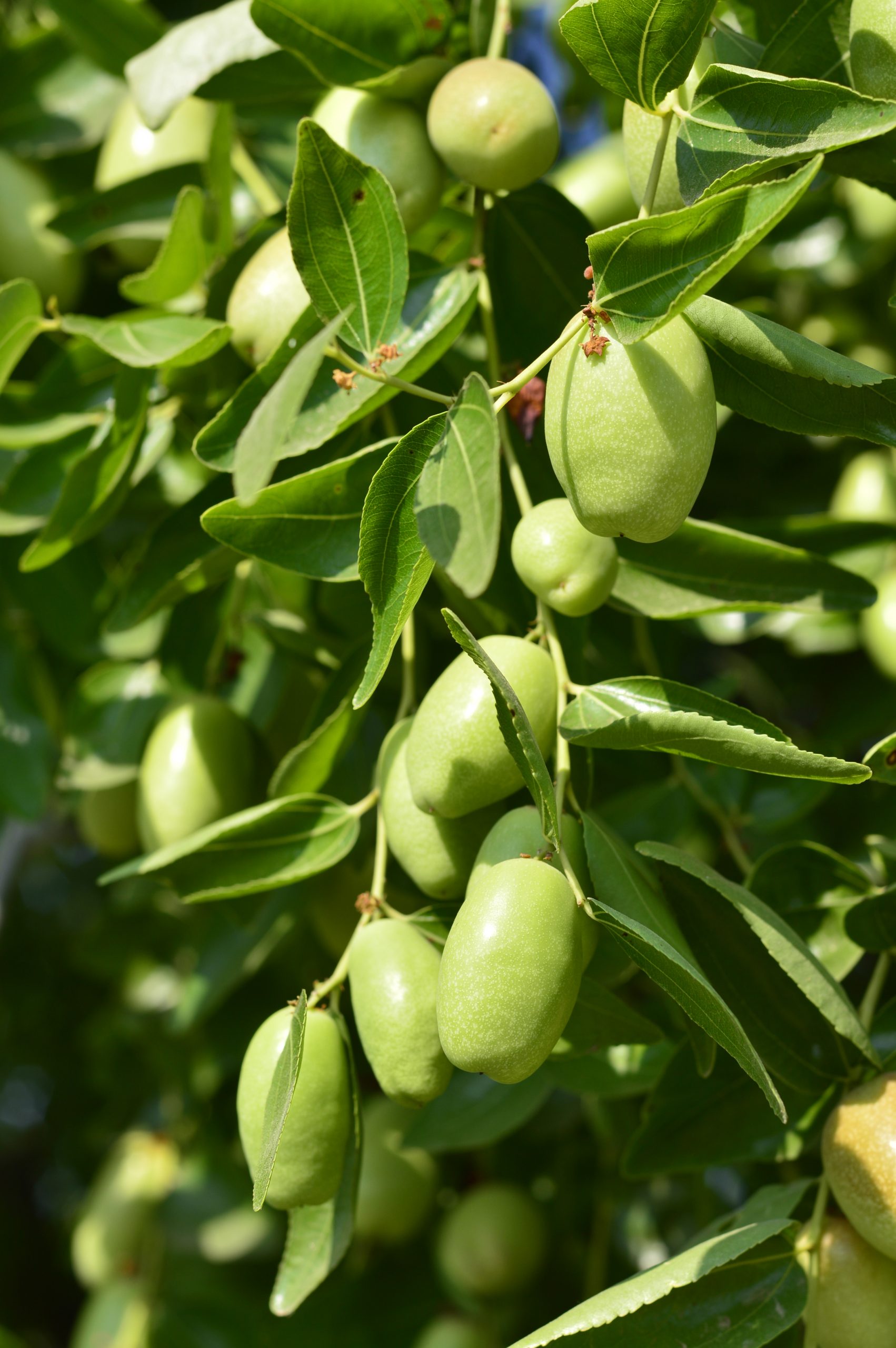
Page Contents
Jojoba oil is actually a wax made from the seeds of the jojoba plant. The jojoba plant is a shrub native to the dry areas of California, Arizona, Utah, and Mexico. Its scientific name is Simmondsia Chinesis, but it is also sometimes referred to as pignut, wild hazel, and gray box bush, among other names.
The liquid that you get from pressing the seeds has been utilized by Native Americans for years to treat wounds and sores. This golden or clear liquid can be odorless if it is refined well, or it can have a slightly nutty odor if it is unrefined.
Not only has it been used in the application of wound healing, but it has also suddenly found itself expanding into other areas. In its oil form, jojoba can now be found on the cosmetic market in products such as moisturizers, shampoos, and conditioners.
This is thanks to the fact that studies are showing more and more just how good this oil is for you. Jojoba oil is able to be utilized on your hair, skin, and even internally in small amounts or on other parts of your body.
However, if you’re reading this, you likely only have one real question. Does it work for hair growth? Let’s explore more about jojoba oil, what’s in it, and how you should use it to get the best results for your hair.
What Is In Jojoba Oil And How It Can Help Your Hair
The oil from the jojoba shrub is full of vitamins and minerals that are known for their many benefits for nourishing hair. This includes vitamins B, C, E, copper, and zinc. The B vitamins, in particular, are ones that your hair needs.
By giving your hair these vitamins, jojoba oil helps your hair in a variety of ways. The oil helps your hair to grow stronger, helping it to be thicker due to less breakage. The fact that it’s an oil is also a benefit, even if you have oily hair.
Jojoba oil has been shown to be a great dandruff remedy thanks to how moisturizing it is. As it moisturizes your hair, it also bonds with your hair, making the strands stronger and even helping with split ends.
Another great benefit of jojoba oil is that it’s anti-inflammatory. Inflammation is bad for your hair in more ways than we have time to dive into, especially if your scalp has inflammation that’s severe or over a long period of time.
One common thing that can cause inflammation is DHT. It’s this inflammation as much as the DHT itself that causes you to lose your hair when you’re suffering from pattern baldness. This means that jojoba oil can help some with the symptoms of pattern baldness, although it is not an actual treatment for that.
Lastly, you should also know that jojoba oil has antibacterial properties. This can help both prevent and treat things such as folliculitis, which is caused by a bacteria called Staphylococcus aureus.
How to Use Jojoba Oil
There are a few different ways you can utilize jojoba oil. You can even feel free to use it right alongside your current hair growth treatment plan. Since it’s a natural product, the jojoba oil is not likely to interfere with anything else you might be doing with your hair.
This means that you can continue your usual hair care regimen and simply add jojoba oil to it.

Option 1:
The first and simplest way to use jojoba oil in your hair is to find products like shampoos and conditioners that already have the oil in them. However, you can add some jojoba oil to whatever shampoo or conditioner you already use.
You do not need to add a lot of the oil. Just add around 20 drops of the jojoba oil in your bottle of shampoo and shake it to mix. You may need to put in a small metal bead in order to mix the jojoba oil into thicker shampoo or conditioner.
Use the shampoo with the jojoba oil in it the same way that you usually do. If you want to have the jojoba oil in your hair a little longer, you can feel free to leave your shampoo or conditioner in your hair longer than you usually do before rinsing.
Option 2:
The second option for using jojoba oil is to purchase the jojoba oil of your choice and apply it directly to your scalp and massage it in. Jojoba oil is easier to apply if warm, so the best way to heat it up is to rub the bottle between your hands for a few minutes.
You can also put it in a pot or microwave-safe bowl. Just be sure not to overheat it. This could melt the bottle that the jojoba oil is in, or it can burn your scalp. If you’re in doubt as to the temperature of the oil, you can test it out on the inside of your wrist.
Once the oil is at the desired temperature, apply one to two tablespoons of the jojoba to your scalp. Then, work the oil into your scalp and down through the tips of your hair. Shorter hair will need a smaller amount of jojoba while longer, thicker hair will need a larger amount.
Once the jojoba oil has been thoroughly applied, leave it in for a while. After you have left the oil in for at least twenty minutes, shampoo and condition your hair like usual and rinse thoroughly to get the oil residue out of your hair.
Option 3:
Your third option for using jojoba oil on your hair is to use it in conjunction with other hair loss treatments. For example, if you do microneedling on your scalp, you can apply jojoba oil on your scalp immediately after.
Applying the jojoba oil right after the needling will serve two purposes. First, the jojoba oil will help to soothe your scalp, which can be quite irritated after the needling. Second, applying the oil right after the needling will help the jojoba oil to be better absorbed by your scalp.
To help even more, coconut oil or another soothing oil can be mixed with the jojoba oil. Mixing these two oils can help you get the best out of both of them, and coconut oil is a great carrier oil.
Does the Research Back Jojoba Oil?

Because jojoba oil is so new to the hair care market, there is not a lot of research behind it to back the product for hair growth. There are many claims stating that jojoba oil can strengthen your hair and treat a dry, itchy scalp, but this is not fully supported in research yet.
What little research has been done on jojoba oil for your hair has shown little results. It has been compared in studies to both peppermint essential oil and minoxidil. In these, the jojoba oil did show some results, but not as much as the other options.
However, jojoba oil has been well-researched for other things. One study was done on its antibacterial effects on a few different strains of bacteria. For comparison, Chlorhexhidine, which is a disinfectant commonly used for surgeries, was used on these same bacteria.
While the jojoba oil was not as effective as the Chlorhexhidine, it was still able to kill off the bacteria efficiently. This is something that will definitely help your hair health, even if the jojoba oil doesn’t actually improve your hair growth.
These studies have all proven that jojoba oil is safe to use. Even in large amounts, you can use this oil on your scalp without overdoing it. In extraordinarily excessive amounts, the worst that jojoba oil can do is to cause hyperemia.
Hyperemia is excessive blood flow, and if you continue using the jojoba oil then this will damage your heart. However, in the proper amounts, this also proves that the oil is very likely to help with the blood flow to your scalp.
Our Suggestion
Because jojoba oil is still fairly new on the market, you should not count on it as a treatment for baldness, alopecia, or other disorders that cause hair loss. However, the vitamins and minerals found in jojoba oil do provide wonderful options for you if you are looking to improve your hair health.
This can not only improve your dry scalp but also the strength and silkiness of their hair. While it can make your hair oily, the jojoba oil will also give your hair a bit of a shine to it. If you’re looking for ways to enhance the condition of your hair, adding jojoba oil to your daily routine would absolutely be worth a try.
Just be sure to use jojoba oil with reasonable expectations and not expect immediate overnight results. Instead, do not expect results in any less than a month or two of applying it daily.
Not all hair growth solutions work well. Check out our list on the best 3 hair products and save yourself money, time, and best of all – hair!






